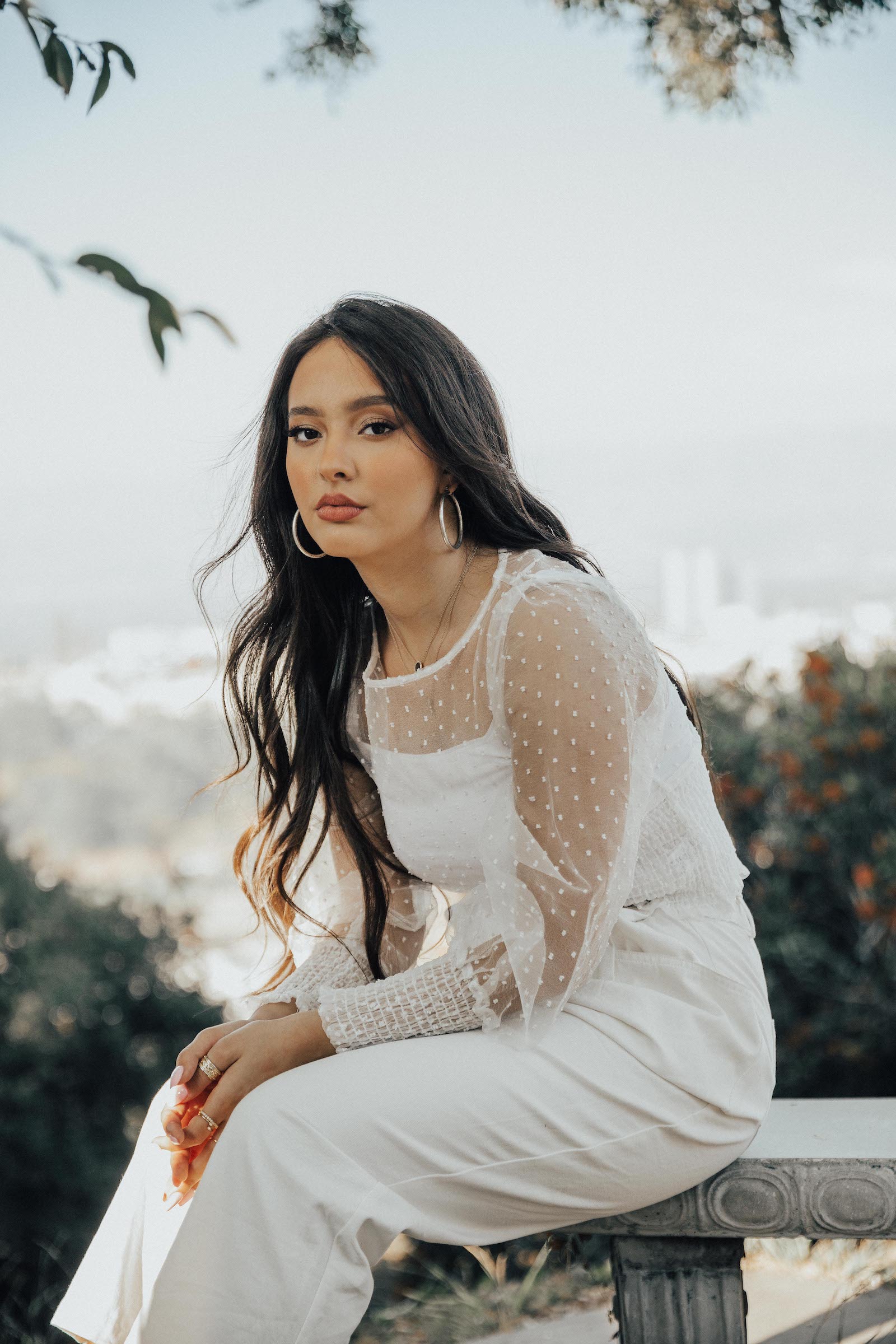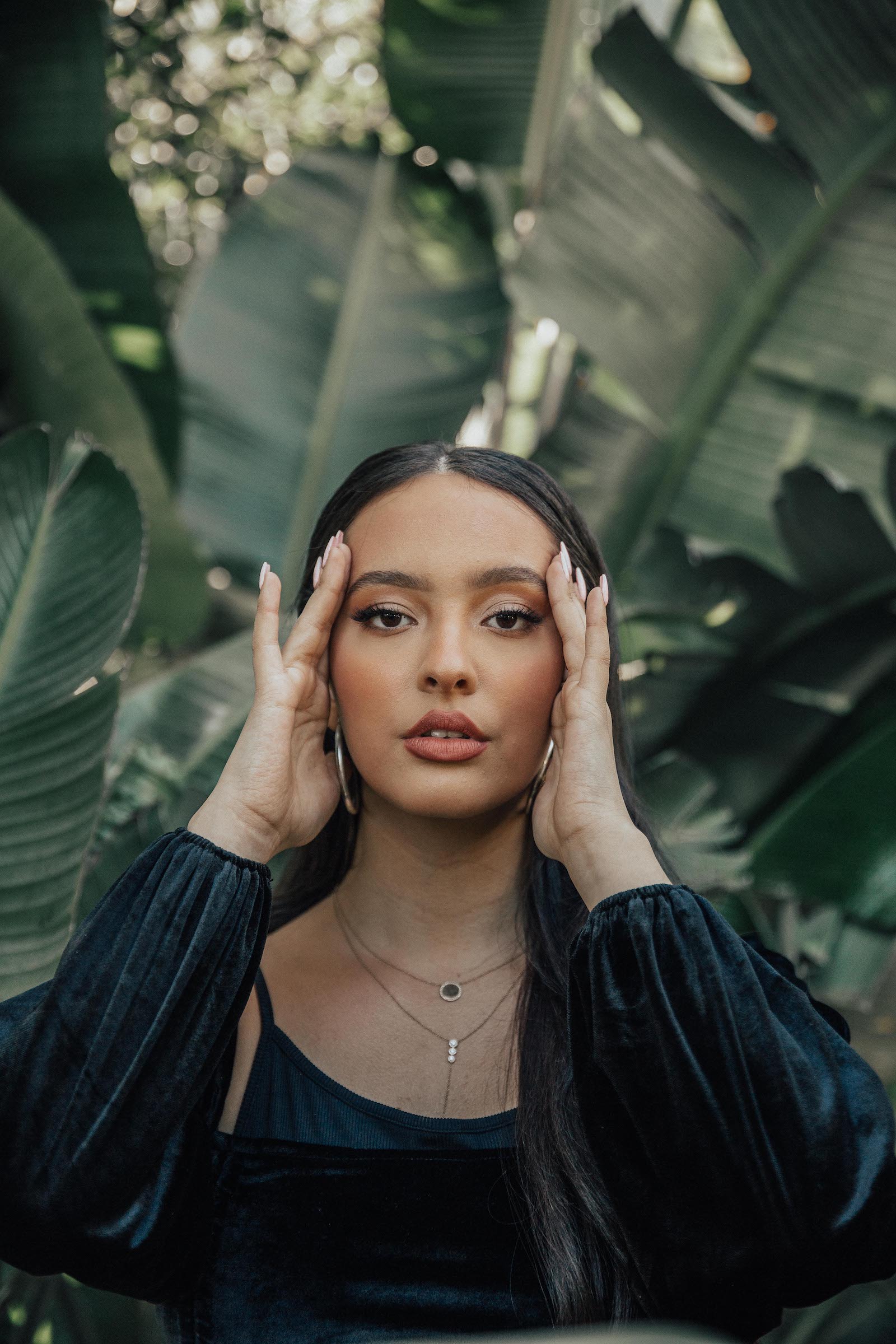 The human voice is the most intrinsically unique instrument on the planet. Though most can croak out a note or two, our society’s collective enamoration with the voice is unparalleled. Largely because singing is a direct sonic representation of emotion and even when our mind doesn’t want to, our spirit longs to feel. Certain voices illicit deeper feelings and awe-stricken reactions than others, and many of those people become modern-day “legends” in our society. With the invention of YouTube, these killer voices have circulated our feeds since 2005, but as the playing field becomes more and more equalized, special someones cut through the noise and pave the way for the next generation’s musical legends.
The human voice is the most intrinsically unique instrument on the planet. Though most can croak out a note or two, our society’s collective enamoration with the voice is unparalleled. Largely because singing is a direct sonic representation of emotion and even when our mind doesn’t want to, our spirit longs to feel. Certain voices illicit deeper feelings and awe-stricken reactions than others, and many of those people become modern-day “legends” in our society. With the invention of YouTube, these killer voices have circulated our feeds since 2005, but as the playing field becomes more and more equalized, special someones cut through the noise and pave the way for the next generation’s musical legends.
One such voice that demands to be heard belongs to 19-year-old Moroccan-Canadian artist, Faouzia. Though her vocal abilities are up there with greats such as Ella Fitzgerald and Ariana Grande, Faouzia is far more than a miraculous set of vocal cords. Immigrating to Canada from Morocco when she was an infant, her time as an adolescent was far from one-track-minded. Through her Arabic roots at home she learned her family’s native tongue, immersing herself in her culture’s music and customs. During her time at school in the tiny town of Carman Manitoba (one that boasts a population of only 3000), she learned French and English and studied classical piano and violin. Though concentrated, her educational pursuits extend far beyond music, as she is currently studying Computer Engineering at the University of Manitoba.
Some may argue that it is this exact multidimensional background that allows Faouzia to create and perform with such remarkable grace and expertise. As much of a songwriter as she is a vocalist, her Arabic roots and colorful past provide her with a dynamic pallet from which she paints her sonic picture. Her latest release, “Wake Me When It’s Over,” is a testament to her compositional and vocal prowess. Co-written with mainstay industry talents Mozella (Miley Cyrus, Kelly Clarkson, Rihanna) and Jonas Jeberg (Panic at the Disco, Selena Gomez, Demi Lovato), “Wake Me When It’s Over” is an anthemic ode to accepting the anxieties of uncertainty and finding inner peace in waiting for a better tomorrow.
We had the distinct pleasure of interviewing Faouzia, covering an array of subjects ranging from the languages she dreams in to her experience growing up in the rich Arabic culture. Read on below…

You were born in the Moroccan city of Casablanca but uprooted to Canada at 1 years old, what prompted your family’s move?
My parents wanted a better life for their children; especially a better education.
Did you ever experience a clash of cultures at home versus in school as an adolescent?
Yes there were a few times that this happened but I was able to adapt throughout the years and experience Canadian culture as much as Moroccan culture! It made growing up really interesting and fun. I’m happy I was able to experience the best of both worlds.
Did you grow up listening to Arabic music?
Yes! All the time! I would always listen to Arabic music at home and in the car on our way to camping trips!

If so, any personal favorites Arabic songs, artists, or composers you’d recommend?
Yes! My parents would play artists ranging from Umm Kulthum, Fairuz, and Assala Nasri! I would also listen to some Moroccan artists such as Fnaire and Cheb Khaled.
How do your Arabic roots influence your writing and vocal performance today?
My Arabic roots have been influencing my style of singing ever since I was little! I would hear these big powerful Arabic voices do the craziest runs and trills and I would try to imitate them. Now, I incorporate them in my pop music! You can especially hear it in my song “You Don’t Even Know Me.”
You’re trilingual so I have to ask, do you have a favorite word in English, French, and Arabic? If so what are they?
I don’t think I have a favourite word in English or French but in Arabic, my favourite word is sidi moulay, which means “my lord.” I just think it’s really fun to say.
What language are your dreams most often in?
My dreams are most usually in English! But if I’m dreaming about talking to my parents, then they’ll switch to Arabic.
You grew up in the tiny town of Carman, Manitoba which boasts a population of only 3000 people. What were the pros and cons of living in such a small town?
I think the pros of living in such a small town is that you know everyone and if your community is supportive it can feel like a really big supportive family! Which is thankfully what I experienced here. Another pro is that there isn’t a lot to do here which let me explore so many different hobbies. I don’t think I would have ever written as much and practiced singing as much if I was surrounded by distractions! These two things could also be taken as cons if you aren’t fond of those who are surrounding you and if you don’t have anything you like to do at home! I think I got really lucky!

How did you first discover you could sing?
I never really discovered that I could sing, I just did it because I loved it! I started performing at a really young age and when people would come up to me after talent shows and such, they would always say the kindest and most supportive things! It made me think “Hey!, Maybe I can start performing more often!” Eventually, I decided that I wanted to start putting covers on YouTube and I released my first song when I was fifteen years old. It was a gradual process but it has always been a passion of mine and I’m so happy that I get to do what I love.
Your study of classical music is extensive, how many instruments are you classically trained on?
I took 11 years of classical piano and I took the Royal Conservatory piano exams for level five, six, seven, and eight. I took violin lessons for four years and I mostly just learned fiddle tunes! I know how to play the guitar but I don’t know how to play it as well as the other two, just enough to get by.
Do you have a favorite to play?
The piano is definitely my favourite instrument to play. I feel at home when I’m sitting behind the piano and growing up, that’s where I would always write songs. When I perform live, I make sure to have a few songs in the middle of my set that are just the piano and I.
You’re currently enrolled in the University of Manitoba majoring in Computer Engineering, what inspired that major?
I always loved science and mathematics in school and I thought that Engineering would be the perfect faculty for me to get a taste of everything I loved studying. After my first year, I found coding to be so interesting so I decided to dive into that world!
When did you start writing your own music?
I wrote my first song when I was six years old! I have always had a passion for writing as much as singing!
Your latest single “Wake Me When It’s Over” is my favorite of your releases to date. Can you shed some light on the story and inspiration behind the song?
“Wake Me When It’s Over” is about the thoughts and anxieties that we have that can take control, but can also help us appreciate normal, everyday life. It’s about how sometimes the only thing to do is wait until the difficult times pass and be grateful for the simple things that we do have.
What does 2020 look like for Faouzia?
To be honest, I’m not really sure! This year has been very unpredictable but one thing I know for sure is that there is a lot of music coming and I am so excited for everyone to hear it!

CONNECT WITH FAOUZIA
INSTAGRAM // TWITTER // SPOTIFY
photos / Jess Sophr
story / Jessica Thomas
